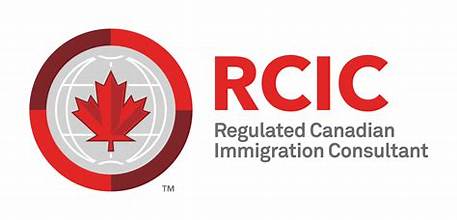Saskatchewan Immigrant Nominee Program (SINP)
Saskatchewan, situated in the heart of Canada, is renowned for its vast prairies and expansive fields. It is an ideal destination for newcomers to Canada, offering a cost-effective lifestyle and a diverse, culturally rich community.
Saskatchewan is very successful with immigration. The province welcomes between 3,000 and 4,000 newcomers each year. That number has now grown to 15,000. This is especially impressive considering that Saskatchewan’s population is just over 1 million. The province is one of Canada’s most popular destinations for newcomers.
- Home
- Immigration to Canada
- Canada Provincial Programs
- Saskatchewan Immigrant Nominee Program (SINP)
Saskatchewan Immigrant Nominee Program (SINP)
SPNP consists of various streams aimed at attracting skilled individuals and families with experience to settle and work in Saskatchewan. This includes skilled workers, trade workers, investors, entrepreneurs, and family sponsorship programs.
One of the significant advantages of SPNP is the expedited and efficient nomination process. Through SPNP nomination, candidates can apply for Canadian permanent residency more quickly and conveniently. The Saskatchewan Provincial Nominee Program not only helps the province attract the necessary talents and workforce but also provides opportunities for immigrants to participate in and contribute to the local community and economy of Saskatchewan.
International Skilled Worker
Saskatchewan Work Experience
Entrepreneur
Farm Owner and Operator
Program Details
Under this category applications from skilled international workers will be accepted, who plan to live and work in the province of Saskatchewan. applicants will get points on the basis of which they can be nominated under one of three sub-categories.
International Skilled Worker – Employment Offer
Under this sub-category, applicants who are a skilled worker are eligible to apply for provincial nomination if they have a job offer from an eligible Saskatchewan employer. If the applicant has a job offer for an occupation classified at NOC level 0, A, B or a designated trade in Saskatchewan, it will add 30 points for applicant under SINP points grid.
International Skilled Worker – Occupations In-Demand
Under this sub-category, applicants who are highly skilled and have experience in an in-demand occupation in Saskatchewan are eligible to apply even if they do not have a job offer. All in-demand occupations that are eligible under the SINP’s Express Entry and Occupation In-Demand sub- categories are rated Skill Level A or B or Skill Type 0 under Canada’s National occupational Classification, or NOC.
International Skilled Worker – Saskatchewan Express Entry
Under this sub-category the province nominates individuals who are already in immigration, Refugees and Citizenship Canada’s (IRCC) Express Entry pool and have a skilled work experience in an in-demand occupation in Saskatchewan.
Under this category all foreign workers who are currently living in Saskatchewan are eligible to apply for SINP. The Saskatchewan Experience Category accepts applications under the following sub-categories:
Existing Work Permit
Individuals who have been working in Saskatchewan for at least six months under a valid work permit are eligible to apply for SINP.
Health Professionals
Individuals who have worked as a physician, a nurse, or any other health profession in Saskatchewan for at least six months can apply for SINP.
Hospitality Sector
Under this sub-category those individuals that are currently working in Saskatchewan as food counter attendants, food and beverage servers, kitchen helpers, or housekeeping and cleaning staff for at least six months are eligible. The employer must receive approval from the Province of Saskatchewan before the applicant begins to work in Canada.
Long Haul Truck Driver
Individuals who are currently working for an approved trucking firm in Saskatchewan must have a minimum of six months experience in Saskatchewan for their current employer to be considered for SINP.
Students
International students who have graduated from a recognized post-secondary institution in Canada and have worked in Saskatchewan for at least twenty- four months can apply for SINP. If the students have graduated from an eligible designated learning institute in Saskatchewan, they can apply for provincial nomination after working for a Saskatchewan based employer for 6 months.
This category is for individuals who wish to invest management talent and capital in Saskatchewan by establishing, acquiring, or partnering in a business the province. Candidates are expected to take on an active management role in the business. This sub-category functions on an Expression of Interest model.
This category is for experienced farmers with considerable capital looking to invest in a farming operation and settle in the province of Saskatchewan.
Benefits for your family
With provincial nomination, your entire family, including your spouse and children under 22 years of age (at the time of submitting the provincial nomination application), can submit for Canada Permanent Resident to enjoy most of the benefits like Canadian citizen
During the wait for permanent residency, your family can apply to come, work and study in Canada
- Free access to elementary and highschool
- Legal protection under Canadian laws
When you become Canada Permanent Resident
- Freedom to live, study, and work across the entire Canadian territor
- Access to social welfare
- Eligibility to apply for Canadian citizenship afterthe waiting period. Qualify to apply forCanadian citizenship, the 6th strongest passport globally, enjoy visa-freeor direct ETA access to 185 countries
- With PR, university tuition fees are only one-third of what international students pay, with no restrictions on schools and programs
What can we help you?
Each program has its specific requirements; please contact GreenTech Resources Worldwide Canada for personalized guidance.
Profile Assessment
Our Business Immigration experts evaluate your eligibility, ensuring you meet program requirements and success with SINP nomination
Application Preparation
Our RCIC and expert team help you complete and submit your application accurately, including assisting you in crafting a strong business plan for entrepreneur streams
Secure a Job Offers
We can assist in searching for job in Canada. We help you understand the requirements for a valid job offer, resume preparation and interview coaching.
Post-Arrival Support
We also assist in your transition to Canada



